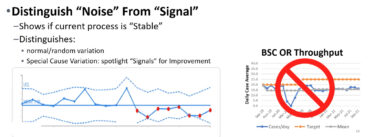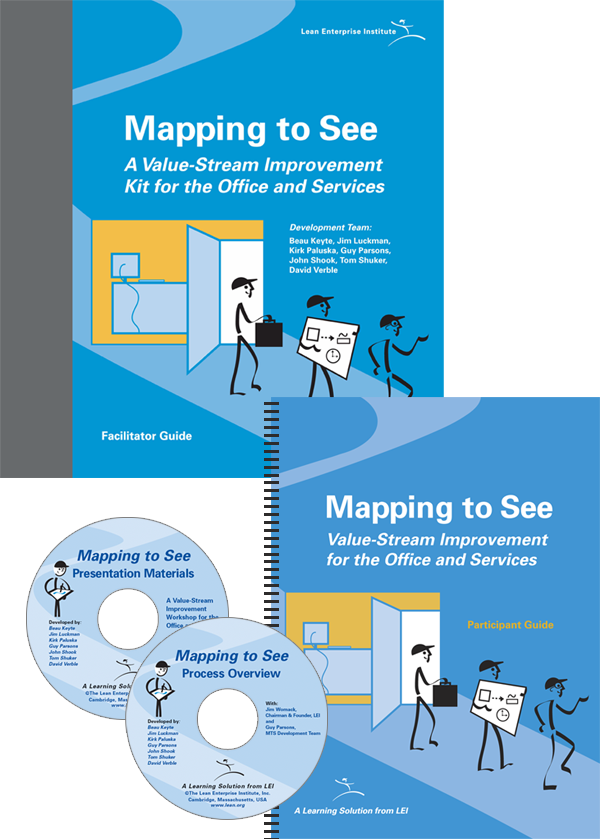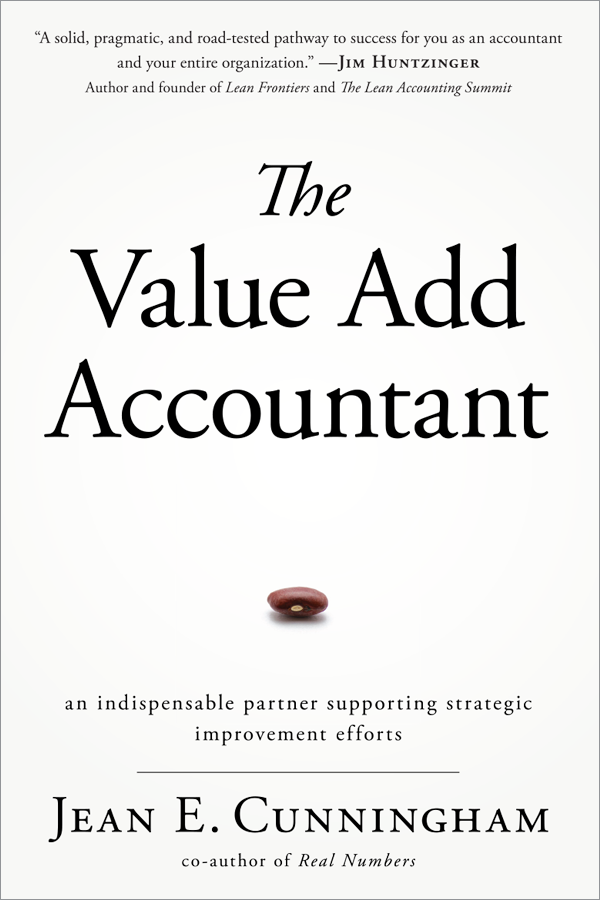If we remove all the trappings of lean management — the tools, the methodologies, even those core principles of just-in-time and jidoka — we will find that lean, at its core, is about developing people. We believe that this development comes through the experience of engaging actively with the frontline work, where the value is created for the customer.
As we examine this work closely, we are always seeking improvement: removing the physical burden and time-wasting tasks for the construction worker, assembler, administrator, and healthcare worker (and on and on). And the more diversity of thought, experience, race, and gender we can bring to this effort, the more potential for empathy we can offer to the individual laborer’s or manager’s challenge.
Diversity and lean make the work better and the world better.
Through this diverse yet sometimes challenging commingling of ideas for improvement, we can improve the work, which builds inclusiveness, engagement, and a more resilient, more secure business model. Yes, the business model is also a critical focus because it allows us to secure the future of each team member we employ. But, in the end, our primary purpose when developing people is not the short-term goal of making more money but rather the goal of supporting each organization and each individual within it to stand stronger and be a greater contributor to our society and the world.
With all this in mind, we are sharing the amazing work that the National Minority Supplier Development Council (NMSDC) is doing to strengthen and develop people in minority-owned businesses (aka Minority Business Enterprises, or MBEs).
Crisis and Recovery
NMSDC’s work took on even greater significance last year as the minority-owned business community took a severe hit from the economic crisis resulting from pandemic-related business shutdowns and civil unrest.
- More than 40% of minority-owned businesses have closed and will not reopen, according to a study from McKinsey & Company.
- 51% of localized small business closures and job losses were concentrated in service-related positions performed by minorities, this report also noted.
- 70% of minority businesses are more concerned about their customers’ and employees’ safety, which impacts hiring and retention of their workforce, according to a report from Metlife and the U.S. Chamber.
By the time NMSDC received the results of membership surveys early in the second quarter of 2020, the team was able to begin understanding the kinds of new programs and resources it needed to create, develop, and launch in support of members. It was also encouraged to hear how many MBEs were using the economic downturn as an opportunity to evaluate their processes, pivot as needed, and strengthen the capacity of their frontline employees.
Not surprisingly, adopting lean thinking and implementing lean practices became a leading topic of discussion and a top strategy for shifting MBEs toward economic recovery.
The Intersection of Diversity and Lean
Our NMSDC-certified MBEs offer insight into how being lean on the frontline is helping America’s workforce become more inclusive and capable.
We’ll begin with a quick definition: The core idea of lean is to create more value for customers with fewer resources and less waste. Lean organizations focus key processes on increasing customer value. Lean business practices require a shift from focusing on the management of separate assets and departments to a more holistic approach, which considers the flow of products and services across the entire value stream.
Integrating a lean philosophy into operations and standards seems to be a natural fit for NMSDC’s MBE community, which uses lean practices to be more innovative and responsive to customers.
The business model for diversity has always emphasized the value of streamlining processes and the importance of remaining flexible rather than rigid. MBEs are often coached to consider business opportunities through the lens of being nimble and responsive while optimizing cost-effectiveness. Where can quick changes be made to align capabilities with needs? What systems could be modified or technologies updated to qualify? Is it possible to deliver successfully with little or no personnel or facility investment?
Just as a consumer-focused strategy evolves from the interaction and connection points between a customer and a product or service, the front line is a solid place to start an evaluation about where to implement lean protocols. A frontline approach allows lean processes to build from the bottom up and within the context of the entire production (or experience) ecosystem. Plus, engaging team members at all levels of the organization offers varied perspectives and makes it more likely that overlaps and gaps in the process are identified. The inevitable results are increased efficiency, improved communication, fewer errors, more competency, and ultimately, higher customer satisfaction.
VDart Huddles for Evolving Priorities
Atlanta-based VDart, a global technology, staffing, and digital business consulting firm, attributes its years of success to a company-wide dedication to continually improving processes, training frontline and customer-facing workers, and reinventing themselves to provide continued value for their clients. Their partners traverse industries from automotive, mobility, and manufacturing to energy, healthcare, and life sciences. By evolving to meet the needs of leading technology companies, VDart has become one of the fastest-growing businesses in digital talent management and technology consulting. The MBE launched in 2007 with five employees and today has a global workforce of 2,500 with offices in seven locations.
According to Sidd Ahmed, VDart’s CEO, his company embraces change and combines analysis, design, and engineering expertise with lean thinking to find innovative solutions for each client. One of its strongest lean practices is a daily huddle, with every employee meeting with their supervisor to discuss the day’s tasks and how to do them efficiently. This practice saves time and energy for employees, allows for increased attention to process improvement, better aligns goals, and improves communication. Specifically, the huddles are crucial to enhancing frontline workers’ capability to deliver higher customer value.
At VDart, daily huddles ensure that everybody’s voice is heard, says Oliver Sam, vice president of people strategy and transformation. Teams can then better establish clear priorities daily — and respond in real time to evolving needs. “Because everyone is having a daily huddle, we can understand bandwidth across the teams — and reallocate as needed,” he says.
The company also adopts work standardization and invests in professional and skills development for their people. VDart leaders believe embracing lean has helped their company improve processes and reduce unwanted costs. They also note lean helped them focus on their internal people-first policy, with goals including no layoffs, no salary cuts, and offering more benefits during the Covid-19 pandemic.
Bradlink Taps Lean to Accelerate Hitting Goals
Helen Callier, founder and leader of Bradlink, cut her teeth in six sigma as a black belt during Jack Welch’s days at GE. At the time, GE was at the forefront of six sigma and was credited for placing it on the map as an effective business management tool for creating lasting process improvements and cutting costs. From this corporate training and experience, Bradlink has leveraged six sigma and lean thinking and practices into its processes.
Based in Houston, Texas, Bradlink is a technical services company that provides architectural design, project management, construction oversight, and inspection services primarily on aviation, transit, and other infrastructure projects. Two primary lean efforts the MBE and woman-owned company uses to improve frontline work and engage team members are having a series of checklists in place and comprehensive training.
Beginning early in the design process or during preconstruction, Bradlink uses a series of interconnected process checklists that clearly outline a project’s scope of work and help team members better track status and identify if an item or step in the process is missing or incorrect. By being proactive and watching for irregularities from the frontline, the company can better mitigate possible delays, reduce design rejections, and circumvent other potential impacts on a client’s allocated budget.
Such work “accelerates the speed at which the company achieves our goals,” says Callier, who notes that they have learned to use checklists as early as possible in executing their work to ensure that plans comply with building codes and to minimize defects and rework. The lists also help frontline workers receive the right information and give clients greater confidence that Bradlink knows what it is doing.
Additionally, Bradlink team members participate in industry-specific training to stay abreast of changes in agency design standards, processes, etc. Information gathered from these training sessions is incorporated as needed into internal process checklists. Team members also regularly update internal standard operating procedures and are required to review and apply new changes before starting a new project.
Leveraging Lean for Growth
Diversity and lean make the work better and the world better. Integrating a lean philosophy into operations and standards is a natural fit for NMSDC’s MBE community, which uses lean practices to be more innovative and responsive to customers. MBEs and woman-owned businesses had been the fastest-growing segment of business entrepreneurs until the pandemic hit. Now, these groups are the largest impacted negatively by the economic downturn. While they’ve received support from corporations, private sector organizations and philanthropies, and the government, much more needs to be done.
If we remove all the trappings of lean management — the tools, the methodologies, even those core principles of just-in-time and jidoka — we will find that lean, at its core, is about developing people.
As our diverse entrepreneurial community continues to recover from 2020, we’re confident advocates like NMSDC will continue providing access to resources and information about lean processes to help them rebuild and become stronger in 2021 and beyond.
About the National Minority Business Development Council (NMSDC)
As one of the nation’s leading corporate business membership organizations, the National Minority Business Development Council (NMSDC) has been advancing opportunities for certified minority business enterprises (MBEs) for 50 years. The New York City-based organization supports and advocates for MBE integration into corporate and public-sector supply chains.
The organization’s efforts include ensuring fair access to capital and funding resources and lending expertise for the creation of equitable policies and regulations. NMSDC also provides MBE with capability and capacity development resources to help it meet the needs of corporate members.
NMSDC supports MBE development and growth through an annual calendar of conferences, networking events, educational programs, a myriad of online resources from a national level, and through its network of 23 regional councils. When the Covid-19 pandemic hit in 2020, its in-person activities shifted to an entirely virtual platform to keep 12,000+ MBEs connected with the organization, each other, and the nearly 1,500 NMSDC corporate members.
Editor’s Note: This Lean Post is an updated version of an article published on February 2, 2021.







